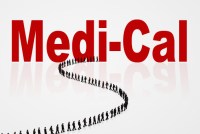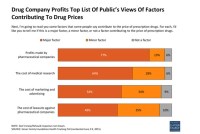Latest KFF Health News Stories
Getting A Medi-Cal Card Doesn’t Always Guarantee Health Care
The problems with managed care plans, documented in a recent state audit, stem from meteoric enrollment growth and lack of oversight, experts say.
CBO Finds 19 Million Would Become Uninsured If Health Law Is Repealed
The nonpartisan agency says the repeal favored by many Republicans would also increase the deficit between $137 billion to $353 billion over 10 years.
Congressional Bills Would Mandate Equal Coverage For Pills And IV Cancer Therapy
The legislation would require insurance companies to cover oral cancer meds as favorably as they do intravenous chemotherapy.
How Will The Health Care Subsidies Decision Affect Everyday Americans?
The Supreme Court is expected to rule on healthcare subsidies soon. As the country awaits the decision, NewsHour interviewed people who would be personally affected by the ruling, and Julie Rovner of Kaiser Health News answers their concerns.
How Not To Find Out Your Health Plan Lacks Hospital Benefits
Don’t assume your employer’s health plan offers comprehensive coverage. Marlene Allen did. Then she got hurt.
California Law Will Allow Pharmacists To Prescribe Birth Control
As soon as this fall, pharmacists in California will be able to prescribe birth control. While some doctors’ groups are skeptical, lawmakers say pharmacists can fill a need for primary care providers, especially in rural areas.
Paperwork Inconsistencies Causing Thousands To Lose Obamacare Subsidies
The problems are affecting consumers all over the country, say enrollment agents.
How Four Words In Huge Health Law Divide The Supreme Court
Here’s a breakdown of the King v. Burwell arguments that challenge and support whether the health law’s tax subsidies can be used to buy insurance through the federal government’s online marketplace.
Obamacare Ruling Could Kill Coverage For 413,000 In Georgia
No tax credit means no health insurance at all for tens of thousands of Georgians.
Auditor Slams California’s Oversight Of Medi-Cal Plans Used By 9 Million
Report finds state health officials had no idea whether managed care plans have sufficient doctors, while an overwhelmed ombudsman’s office failed to answer 12,500 calls a month on average.
Most Americans Say Drug Costs Are ‘Unreasonable,’ Although They Can Still Afford To Buy Them
Most blame drugmakers for high costs, finds Kaiser Family Foundation survey.
Even As Obamacare Seeks To Expand Women’s Coverage, Some Still Face Key Gap
Coverage for labor and delivery for young women who are on their parents’ health plan is not guaranteed under key health laws.
Although Smoking Has Declined, Its Consequences Continue, Study Finds
The bottom line, according to researchers, is that despite 50 years of declining smoking prevalence rates, almost 170,000 cancer deaths annually are still caused by this habit.
Prescription Drug Price Battles Show No Sign Of Letting Up
A pair of new cholesterol drugs is renewing a battle between pharmaceutical companies, which charge huge sums of money for new blockbuster drugs, and payers for those treatments, which include insurers, Medicare and Medicaid.
For Doctors Who Take A Break From Practice, Coming Back Can Be Tough
A handful of programs around the country aim to ease physicians’ reentry into clinical practice, but they can take months and cost thousands of dollars.
Is The Uninsured Rate The Lowest Ever?
President Obama touts the health law’s success in driving the uninsured rate “to its lowest level ever.” But it’s hard to prove that.
Too Soon To Deride High Obamacare Rate Hikes
Prices for plans sold on the health law exchanges won’t be final until the fall, and some of the highest rate increases may be for plans that do not have very many people enrolled in them.
Medicare Drug Plans Favor Generic Opioids Over Those Designed To Avoid Abuse, Study Finds
The Part D plans have cut back coverage of a newer version of OxyContin that has been formulated to make it tougher for people to snort or inject it. That new version is 20 times more expensive than the generic.
New St. Louis Dental Clinic Looks To Close Gaps In Coverage
The state Legislature approved funding this year to allow about 250,000 low-income adults with Medicaid to receive dental services.
Adult Dental Coverage Expanding Slowly in Medicaid
The health law mandated dental care for children, but not for adults. Still, some states are slowly making more services available.






















